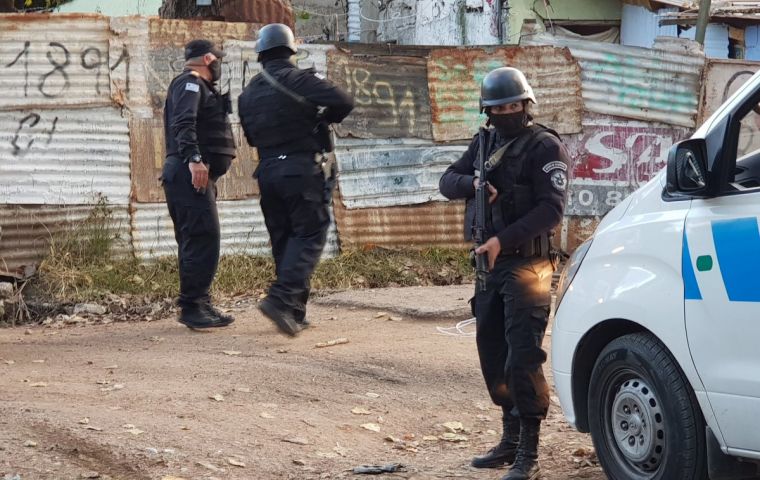MercoPress. South Atlantic News Agency
Southern Brazil ports and Montevideo have become drugs exporting hubs
 Last April 333 kilos of cocaine were discovered in a ship in Montevideo, coming from the port of Rio Grande. Investigations showed that the drug, originally from Colombia
Last April 333 kilos of cocaine were discovered in a ship in Montevideo, coming from the port of Rio Grande. Investigations showed that the drug, originally from Colombia The seizure by Brazilian police of 136 kilos of cocaine on a docked ship in the port of Rio Grande, state of Rio Grande do Sul, clearly indicates the existence of an international drug trafficking route, in the south of the country and neighboring Uruguay.
The newspaper Correio do Povo reported that São Paulo-based criminal faction Primeiro Comando da Capital, (PCC),found ways to ship cocaine in ports like Santos (São Paulo), Itajaí (Santa Catarina) and Paranaguá (Paraná).
Last April, the Brazilian Federal Police was informed of the seizure of 333 kilos of cocaine in Montevideo, Uruguay, coming from the port of Rio Grande. The investigations showed that the drug, originally from Colombia, was destined for the ports of Rio Grande and Montevideo. A fraction of the bust would have been to supply the local market, and the rest redirected to other countries.
The international drug trafficking trade dominated by the PCC begins in coca fields in the Andean countries and continues via land, river, and air routes to Brazil. The cocaine then arrives at major Brazilian ports to be shipped to Europe and Asia.
In March of this year, Brazil's Federal Police and Federal Revenue carried out two operations to dismantle criminal organizations specialized in international drug trafficking between Brazil and Europe, from the port of Paranaguá, in Paraná.
The investigative work pointed out that cocaine was inserted by divers into the submerged compartment of ships or hidden in containers without the exporter’s knowledge, concealed inside legal cargoes of goods.
In the last week's incident the Brazilian Federal Police found that two divers had placed the cocaine on a ship sailing with the flag of the Marshall Islands, coming from Argentina, and which was destined precisely for the Port of Las Palmas in Spain. The vessel was finally moored at a terminal in the port of Rio Grande.
With the support of the Brazilian Navy, the drug was located submerged, in a compartment of the ship’s hull, below the waterline, technically called a “sea box,” packed in bags. An investigation is ongoing to try and identify those involved




Top Comments
Disclaimer & comment rulesCommenting for this story is now closed.
If you have a Facebook account, become a fan and comment on our Facebook Page!